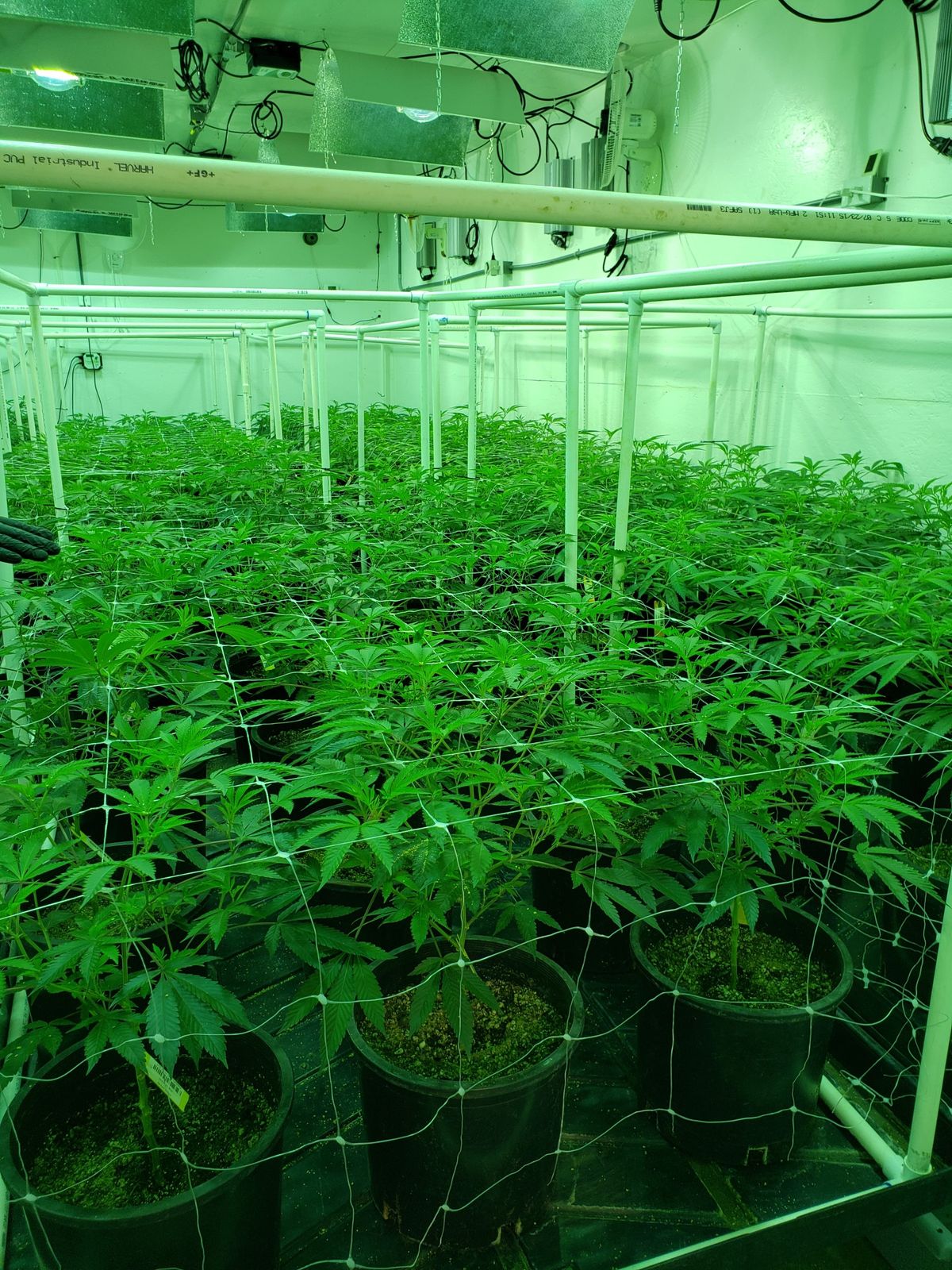GLW creates great growing conditions
Pesticide-free atmosphere is only the beginning

Fred Renteria thought he had a pretty good cannabis farm going. But then an unstoppable outbreak of russet mites two years ago convinced him he could be doing things much better.
“We used to spray everything with pesticides, like most of the other growers,” he said. “Then we couldn’t beat these mites and had to destroy all the plants in two rooms.”
So he looked into other methods and learned about beneficial insects, a natural growing approach that uses a variety of “healthy bugs” at different stages of the plant’s development to eat more harmful insects. Their life cycle is timed perfectly so the bugs are dead and removed by the time a crop is ready for harvest.
“We learned these kinds of natural methods are the only way to beat this, and once you start doing it, you can’t go back,” he said.
Renteria, head grower at Growing Like a Weed (GLW), then looked for other areas of the operation that could benefit from a pesticide-free approach, a constant focus on quality, constant sanitation and overall sustainable best practices.
The use of insects is particularly exciting, and includes praying mantises and ladybugs.
“If we do get an infestation, we either bring in the bugs or destroy things,” he said. “Plus, if there are no bad bugs for the good ones to eat, they’ll just die anyway.”
The Tier 2 indoor producer/processor is located in the Mead area at the former Mountain Dome Winery. Work is taking place on an adjacent lot to create a Tier 3 outdoor farm, scheduled to open next year.
“A winery is a perfect place for a weed operation,” he said. “It has the storage, plumbing, and other facilities that we need. We keep everything clean, have good airflow, and make sure our team stays clean.”
Today, GLW flower, pre-rolls and concentrates can be found in about 60 stores statewide.
Renteria said the company enjoys growing a variety of strains simultaneously, unlike some producers who only cultivate a few at a time.
“We’re always popping new seeds,” he said. “We’re also constantly testing new ones.”
In early March, GLW had 47 strains in production and 100 more in testing. There’s an active cross-breeding program as well. One of the more popular hybrids is Poison Toad, a blend of Durban Poison and Romulan.
Only the best strains make it to market, however. Each small batch is watched closely in the early stages, and if Renteria and the team don’t believe one has what it takes, the batch won’t go any further.
Attention is also given to the methods used to grow each strain so the experience will always be consistent in terms of terpene profile, which is a strain’s specific blend of natural flavors.
“Our goal is for the strain to always be the same, whether you’re in Seattle or Spokane,” he said.
GLW creates its own soil and mixes it by hand. It also uses a natural compost ‘tea’ that includes plant nutrients, beneficial bacteria, fungi, nematodes and worm casings. There’s an active composting program, and rather than throw away plant waste, it’s sold by the yard.
Renteria said the staff has done well focusing on sanitation as well as quality.
“People have a lot of pride in what we do here,” he said. “You absolutely have to have cleanliness everywhere since plants will absorb everything.”
GLW’s drying method takes about 14 days, about a week longer than many in the industry. Then the plants are hand-trimmed.
The grower has one CBD-heavy strain, Ferrari Fume, designed especially for medical users.
GLW has a crew that works every day, which Renteria appreciates. He tries to organize movie nights, barbecues and other fun social activities, and said more will be coming soon.
The grower also makes good use of the Mountain Dome equipment, including hoses, carts, fans and more.
Along with the new outdoor site, GLW plans to create an extraction area and packaging center. It will also be building light-deprivation greenhouses to make it easy to grow all year.
“In the future, we’d love to give tours up here,” Renteria said.